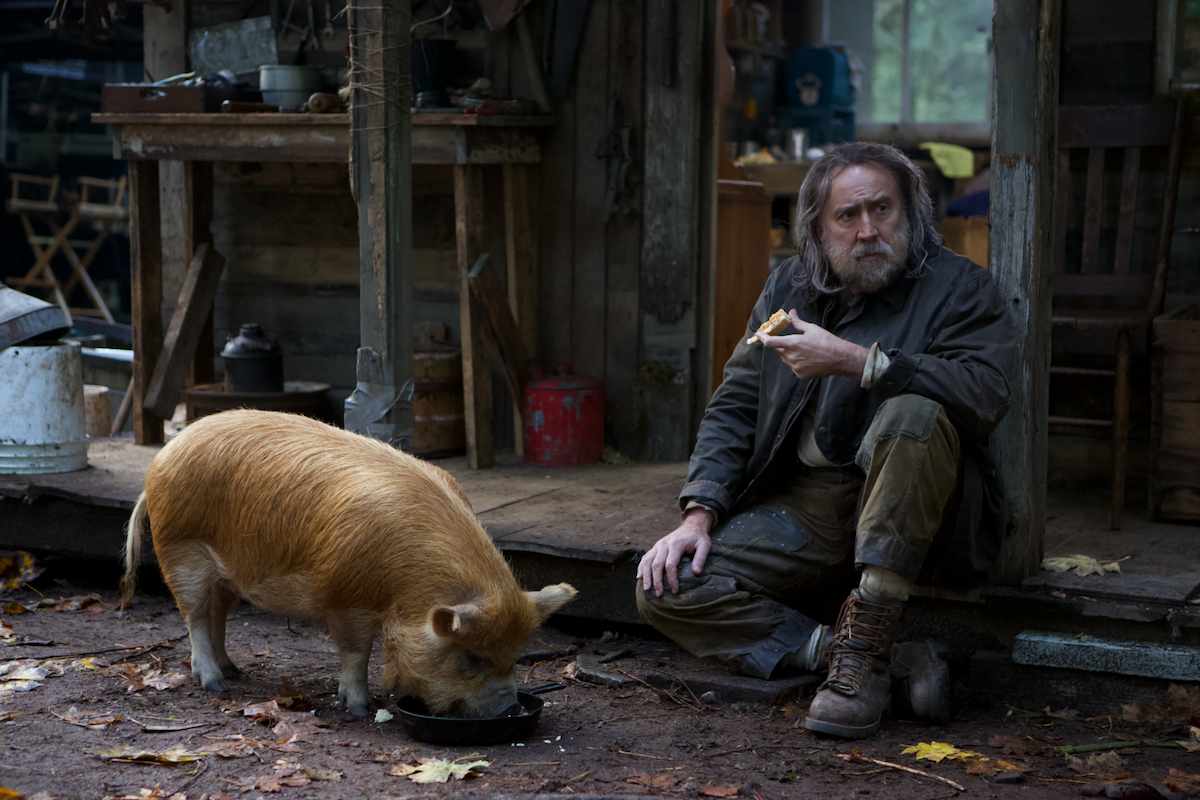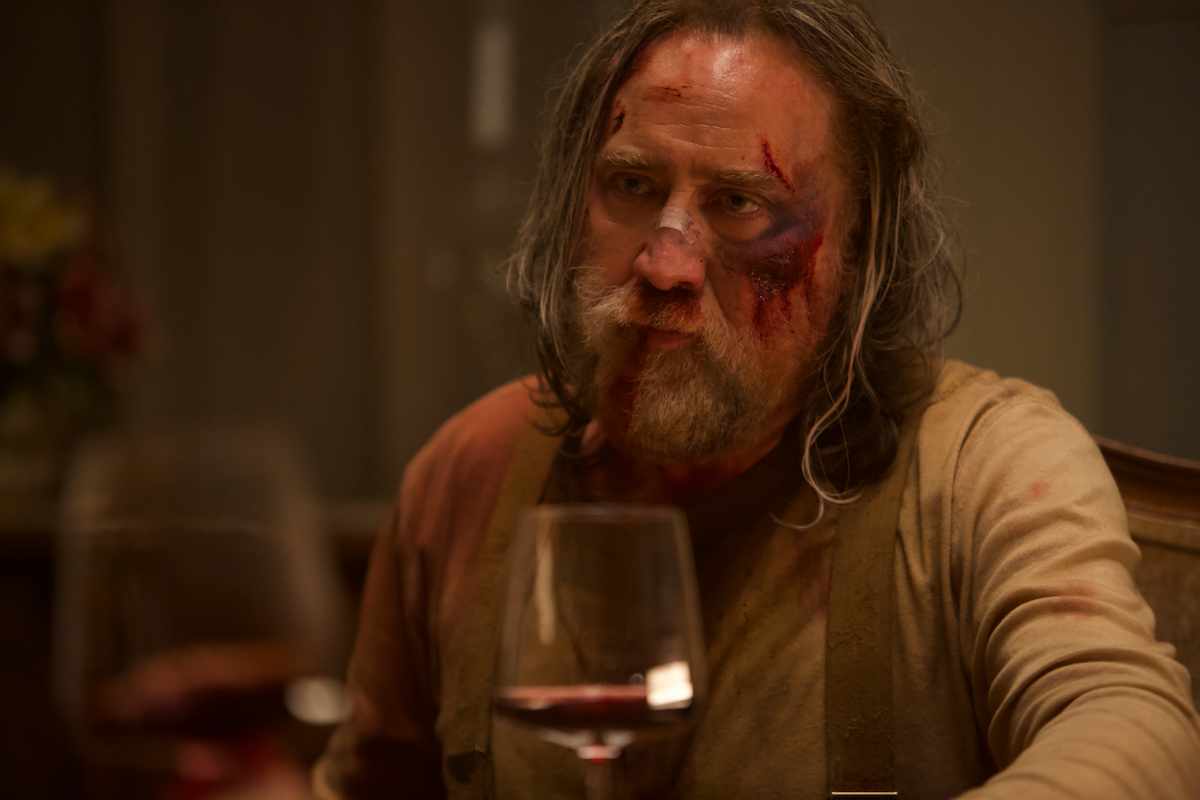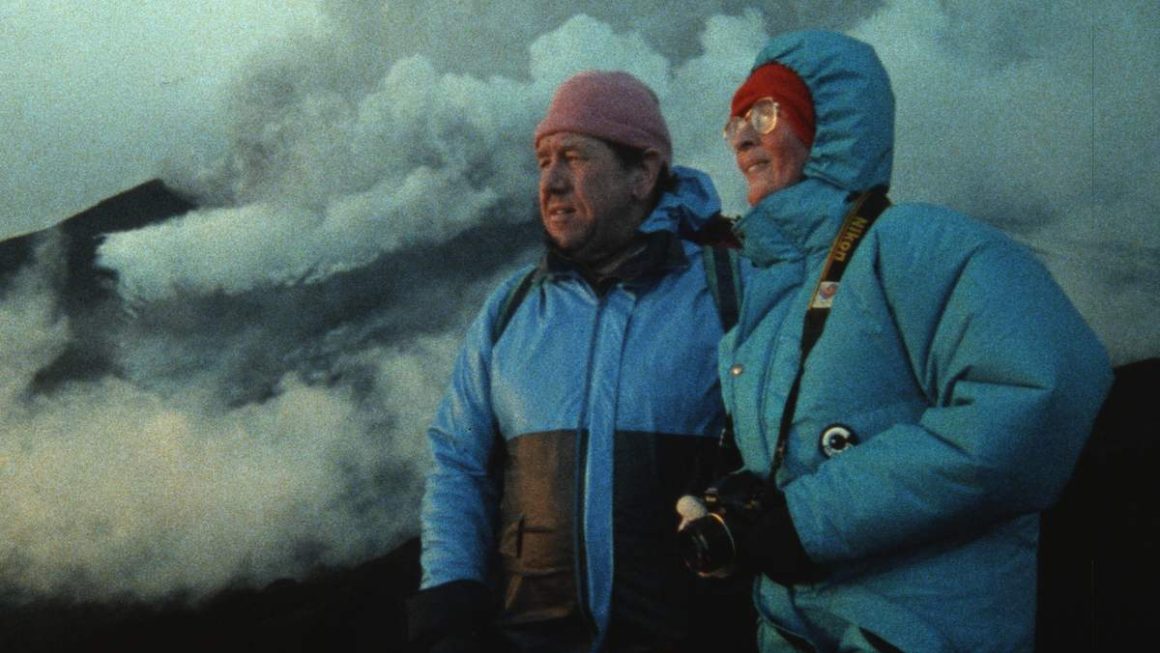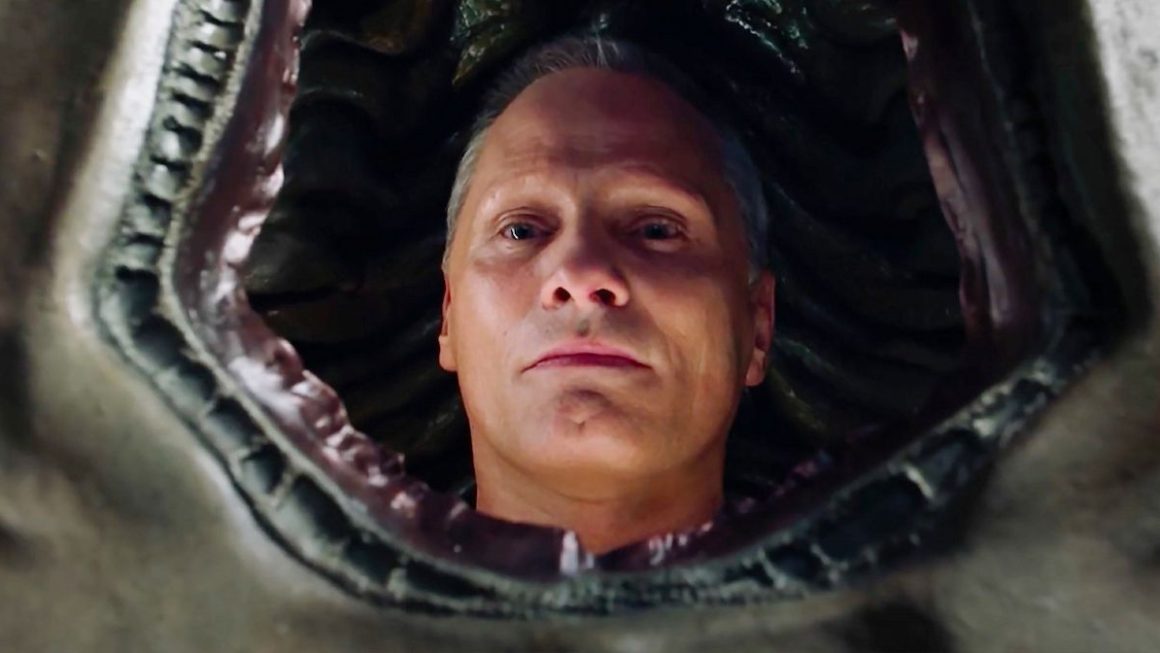Pig lures you in with an odd concept, a woodsman goes into Portland to retrieve his stolen truffle pig. What unfolds is an unimposing story about an ex-chef who’s lost too much to bear. This serves as motivation for his quest to take back what’s his.
It’s the story of a man who must try and put his life back together, by revisiting and relying on the life he used to have.
Thrilling and at times gentle, this film elevates the so-called slow-burn of withholding information for as long as possible, by not really painting a total picture of Robin Feld (Nicolas Cage) until the film’s conclusion.
Hunting a Pig
It’s the hunt for the pig that allows us, slowly and sometimes painfully, over the course of the film, to begin to know Robin.
The truth is, the pig doesn’t provide support for Robin’s earthly sustenance – truffles in exchange for basic goods, flour, eggs, and other foodstuffs. She provides him with companionship and love. That’s why her kidnapping is so devastating and his determination so unwavering.
He begins to wield his name, albeit reluctantly, in an attempt to track down his pig. It’s by this virtue, that we learn he is an ex-chef, and a big deal in the culinary world of his native Portland, Oregon – at least he used to be.
Robin walks around like a legend risen from the grave, one character even suggests she thought he was dead. He proves he is still worthy by taking a beating in an underground ring of fights for kitchen staff – finally gaining his next clue.
It’s this little trail of clues that leads him to the doorstep of the father of the boy who brings him goods for sustenance in exchange for truffles. Amir (Alex Wolff) made a mistake, he told his father about Robin and his pig, probably in an attempt to impress him. And his father did what he seems to do best, he took what wasn’t his.
There is so much information hidden from the audience in plain sight, which is carefully metered over the course of the entire film, and it’s this that keeps it enthralling. Overall, the film’s content is fairly tame, but that shouldn’t stop the more curious among us from really enjoying what’s there.
Certain contrasts are brought to light here, early on in the film, director Sarnoski explores the differences between the woods and the city, the man and the boy, and even between what we call food.
Amir books lunch at Eurydice, a pretentious establishment whose chef Robin fired for overcooking pasta many years previous in his own kitchen. This lunch, and the subsequent confrontation between Robin and Chef Finway (David Knell) highlights these many contrasts in a way integral to the film – through food.
You see, at the beginning of the film, Robin cooks a meal made from ingredients found in the forest. At Eurydice, Finway puts on a charade of local cuisine inspired by Oregon’s environs, which Robin quickly tears down to expose the truth.
This collision of worlds uncovers something deeper about Robin and about ourselves. It turns the question of pretension and honest love inward. It shows us a broken man that’s lost near everything, and then finally, the last shred of love he has in his life is stolen and murdered. What would you do to maintain the smallest sense of love and craft in your life?
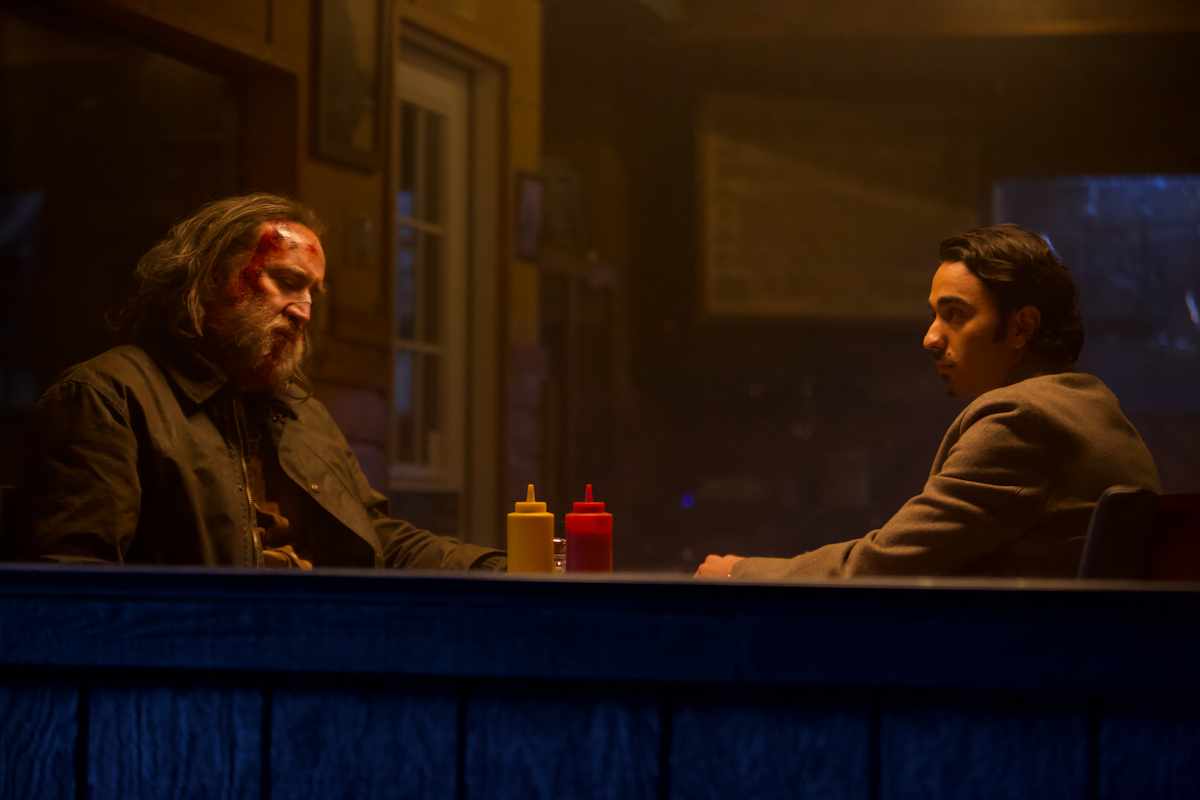
Nicolas Cage as Robin Feld
In a film unlike any other about a chef, Nicolas Cage’s stoicism and metered emotions work brilliantly to elevate the rugged and pitiful character of Robin Feld.
This is a story of a man whose abandoned his life, he ran away from everything because he felt he had nothing. Maybe when his wife died, the food just didn’t matter anymore.
Cage’s less than emotive performances in the past poorly informed my expectations for Pig. In cold hearted and frantic search, the moments in which his character has really heartbreaking moments are made all the more powerful because of his sheer restraint of emotion throughout, leading up to those moments. The contrast breaks through. When he does break, when he learns his pig was accidentally killed, it doesn’t feel like too much to fall the ground to cry in total defeat.
There’s a certain ease and yet heady torment to his performance. Cage impressively disappears into the hardened and broken man that is Robin Feld.
When he decides to walk home from the Skyline Tavern, out into the blackness of the woods, he knows where he’s going, even if we don’t.
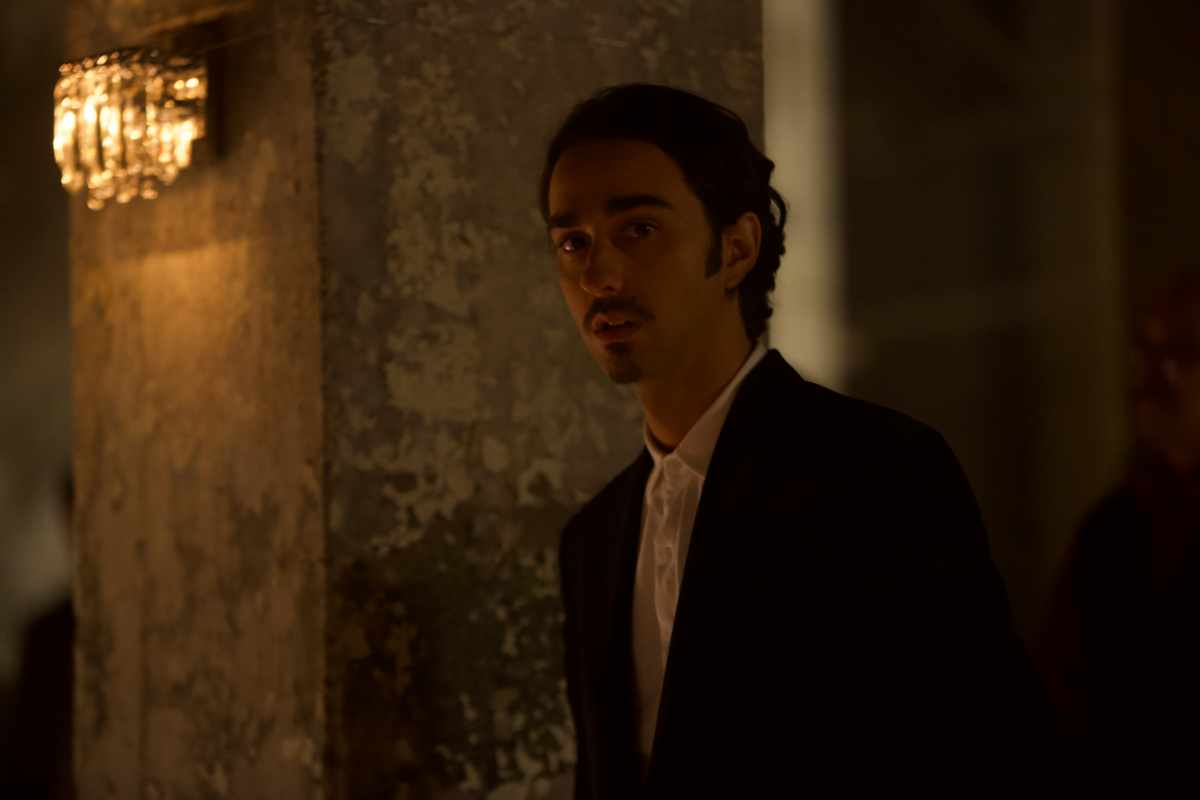
“Slow Burn” Pacing
Similar to Robin’s search for his pig, this film searches for it’s plot points, coming upon them through the will of one man’s determination to take back the only thing that he has left.
I’m fascinated by the fact that films like this one are finding success, films in the so-called “slow-burn” style. Not much is accomplished in terms of plot in an hour and half, and yet I don’t feel unfulfilled. It’s a feeling I’ve had when viewing films from the late seventies, when not much had to actually happen, for so much to happen emotionally, to really get a point across.
Not only do the plot points release small amounts of information over a longer period of time, this type of pacing also proves to rack up immense tension.
Through this tension, Pig explores themes of abandonment, reclusiveness, inadequacy, and heartbreak in a refreshing and alarming portrayal.
Pig
Writer/Director: Michael Sarnoski
Story: Vanessa Block & Michael Sarnoski
Starring: Nicolas Cage, Alex Wolff, Adam Arkin
Images courtesy of Neon

